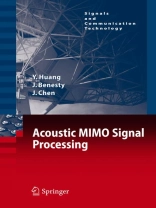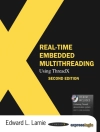Telecommunication systems and human-machine interfaces start employing multiple microphones and loudspeakers in order to make conversations and interactions more lifelike, hence more efficient. This development gives rise to a variety of acoustic signal processing problems under multiple-input multiple-output (MIMO) scenarios, encompassing distant speech acquisition, sound source localization and tracking, echo and noise control, source separation and speech dereverberation, and many others.
Acoustic MIMO Signal Processing is divided into two major parts – the theoretical and the practical. The authors begin by introducing an acoustic MIMO paradigm, establishing the fundamental of the field, and linking acoustic MIMO signal processing with the concepts of classical signal processing and communication theories in terms of system identification, equalization, and adaptive algorithms. In the second part of the book, a novel and penetrating analysis of aforementioned acoustic applications is carried out in the paradigm to reinforce the fundamental concepts of acoustic MIMO signal processing.
Acoustic MIMO Signal Processing is a timely and important professional reference for researchers and practitioners from universities and a wide range of industries. It is also an excellent text for graduate students who are interested in this exciting field.
Table des matières
Theory.- Acoustic MIMO Systems.- Wiener Filter and Basic Adaptive Algorithms.- Sparse Adaptive Filters.- Frequency-Domain Adaptive Filters.- Blind Identification of Acoustic MIMO Systems.- Separation and Suppression of Co-Channel and Temporal Interference.- Applications.- Acoustic Echo Cancellation and Audio Bridging.- Time Delay Estimation and Acoustic Source Localization.- Speech Enhancement and Noise Reduction.- Source Separation and Speech Dereverberation.












